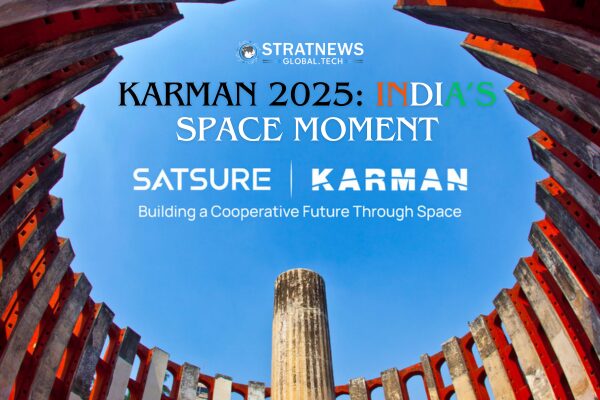In a landmark moment for India’s growing role in the global space community, Bangalore has been selected as the host city for Karman Week 2025. This is a prestigious international gathering of space leaders organized by The Karman Project, a Berlin-based foundation committed to fostering peace and cooperation in outer space.
Set to take place in October 2025, the week-long summit will bring together 15 high-impact leaders from the global space sector—including astronauts, heads of space agencies, and top industry executives—for strategic dialogue, cross-cultural collaboration, and innovation showcases. This year’s delegates hail from leading institutions such as Axiom Space, Airbus, the Saudi Space Agency, the UK Space Agency, and the Kenya Space Agency, among others.
The event will be hosted by SatSure, a prominent Indian Earth intelligence company with deep roots in using space data for development. Its Founder and CEO, Prateep Basu, was previously named a Karman Fellow in 2020, and the upcoming event marks a continuation of his commitment to inclusive innovation in space.
“Karman Week 2025 marks a significant moment for India’s space ecosystem, and it’s an honour for us to host it in Bangalore,” said Basu. “It’s an opportunity to highlight innovations emerging from India—particularly in space data and artificial intelligence—that are addressing global challenges in agriculture, climate, and sustainable development at scale.”
The selection of Bangalore, India’s premier tech and space hub and the headquarters of ISRO, underscores the city’s growing international stature as a launchpad for innovation and policy in the space sector.
“India is not only a leader in space exploration, but also a pioneer in using space technologies to address real-world challenges—be it agriculture, climate resilience, or disaster response,” said Hannah Ashford, Managing Director of The Karman Project. “Bringing our Fellowship to Bangalore allows us to engage directly with this spirit of purpose-driven innovation, and to connect our global leaders with one of the most dynamic and mission-oriented space ecosystems in the world.”
The 2025 edition of Karman Week will feature direct engagement with Indian startups, space institutions, and policymakers. It will also include a nature-based leadership retreat and curated cultural experiences aimed at building trust and collaboration among global space stakeholders.
The partnership between Karman and SatSure is rooted in a shared vision to create impact-driven platforms that use space for the greater good. As part of his Fellowship project, Basu previously launched SatSure Sparta, a tool designed to make Earth observation data accessible for financial inclusion among smallholder farmers in India—a testament to the transformative potential of satellite technology.
A Crucial Year for Indian Space
India’s selection to host Karman Week comes amid a remarkable year of achievements in space. In 2025, India marked the 100th launch from its primary spaceport, hosted the Global Conference on Space Exploration in New Delhi, and achieved a milestone docking manoeuvre between two satellites—a feat accomplished by only a handful of nations. Most notably, ISRO astronaut Shubhanshu Shukla became the first Indian to visit the International Space Station, cementing India’s growing influence in global space affairs.
This year’s Karman Week not only celebrates India’s technical prowess but also highlights the nation’s role as a responsible advocate for peaceful, collaborative use of outer space.
About Karman Week and The Karman Project
First launched in 2020, Karman Week is an invitation-only summit held annually in a different host country. It serves as a platform for influential leaders from government, industry, academia, and civil society to build long-term partnerships and initiate projects that promote sustainability, security, and inclusivity in space. Previous editions have taken place in the UAE, France, Maldives, and Bulgaria.
The Karman Project, headquartered in Berlin, has built a network of over 70 nationalities and has helped launch projects that have benefited more than five million people around the world. The foundation brings together a unique mix of stakeholders—entrepreneurs, astronauts, scientists, and policymakers—to tackle pressing challenges at the intersection of space and society.


